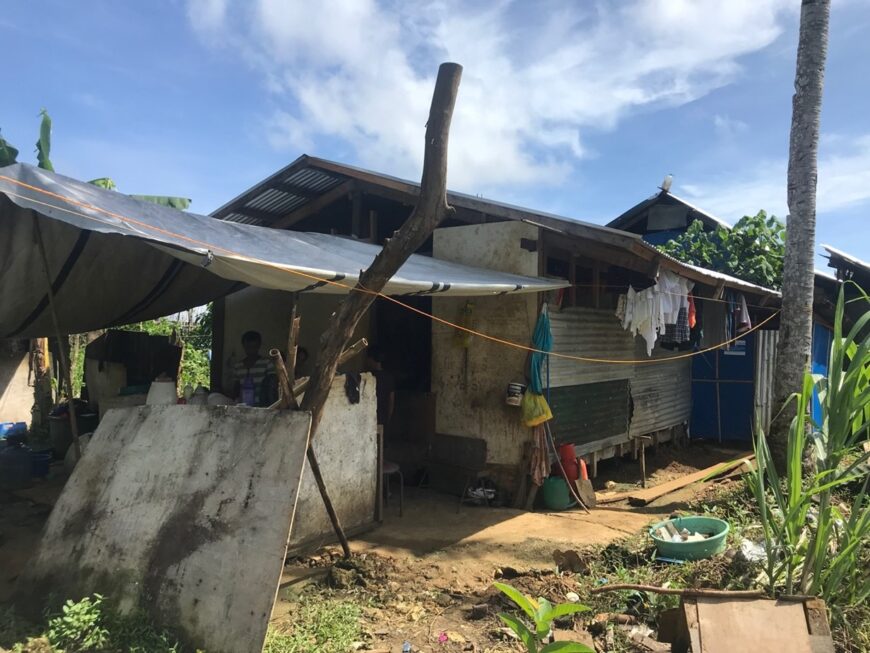Between December 16th and December 18th 2021, Super Typhoon Rai (Odette) made nine landfalls across the Philippines, affecting more than 16 million people and causing at least 177 deaths. In June 2022, nearly four million people remained displaced across the typhoon-affected areas.
Since last April, ACTED has been working with UNICEF and the support of the Ministry of Foreign Affairs of New Zealand. This project focused on answering the dire needs in WASH, hygiene and sanitation of the affected population in the Caraga region. ACTED also contributed to implementing a holistic complementary approach thanks to the Centre de Crise et de Soutien funding that covered the needs in terms of shelters and rehabilitation of public infrastructures.
Providing wash, hygiene and sanitation assistance for Typhoon-affected populations
In the Philippines, 6.3 million households do not have access to sanitary toilets, leading them to use improper toilet facilities or to practice open-air defecation. Open-air defecation represents a great risk to the health and well-being of communities accross the country. Following Typhoon Odette, the practice increased as 2.4 million people were still in need of emergency water and sanitation due to the typhoon effects.
Assisting affected families to live in zero open defecation areas
ACTED supported the establishment of an effective leadership for WASH coordination within 3 municipalities and improved the accessibility to toilets and washing facilities. The facilities built as part of this activity were designed to be culturally appropriate, secure, sanitary, user friendly and gender appropriate, and comprised awareness-raising messages regarding WASH and handwashing behaviour.
Thanks to the support of UNICEF, ACTED supported the Zero Open Defecation Certification of 4 municipalities and 38 barangays.

Marissa Composo, 42, is a mother of nine children, the youngest being six months old. After the typhoon, her family lost everything: their house only had its foundations left. They stayed one month in an evacuation center and slowly rebuilt their house with the remains of other destroyed properties.
Marissa and her family never had any toilets in their home because of the costs involved: they were most often using their neighbours’ facilities, but due to the size of the family, they sometimes had to resort to open-air defecation. In this case, they would dig outside or throw the defecation away.
A sanitary kit was distributed to Marissa’s familly in September 2022. Marissa was grateful as it implied her worrying less about the possibility of her children getting diseases anymore.
We can now go to our own toilets.
Her story is one of thousands of stories from people who have received aid from ACTED and its humanitarian partners. Thousands of people’s lives in the Philippines were impacted by the typhoon. In this context, ACTED aims to ensure access to equitable basic service and protection for the already vulnerable population.